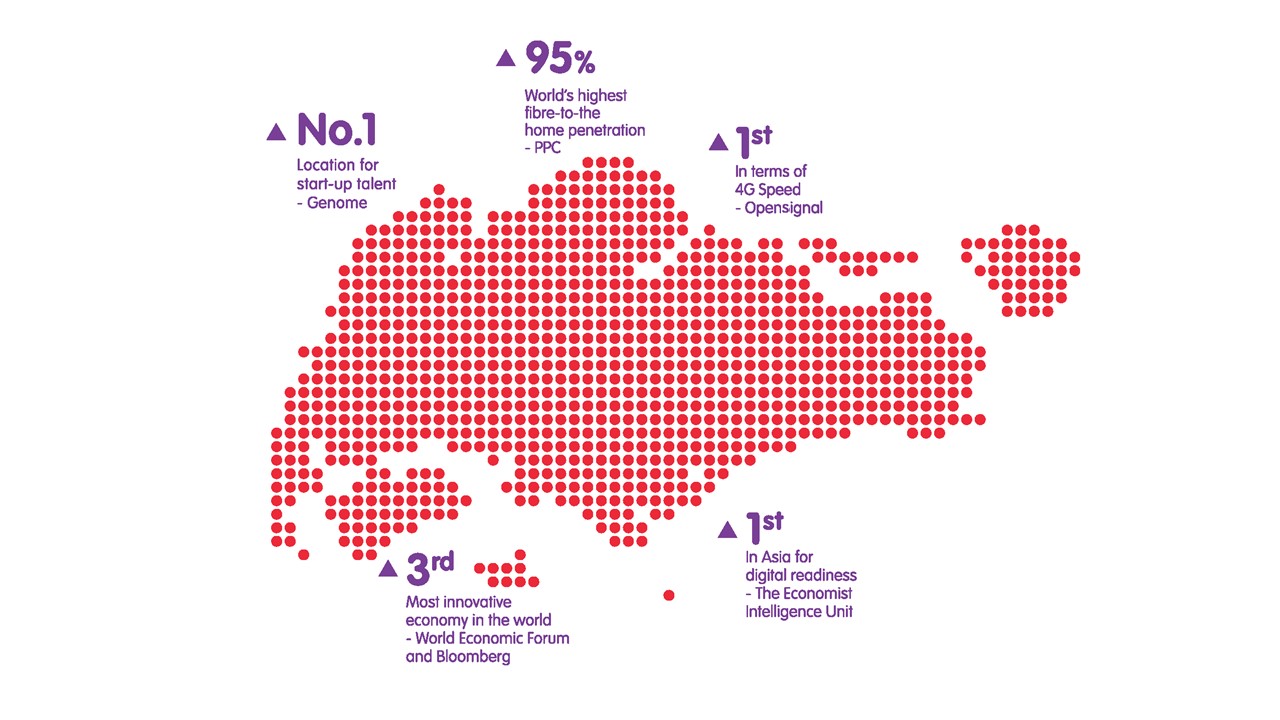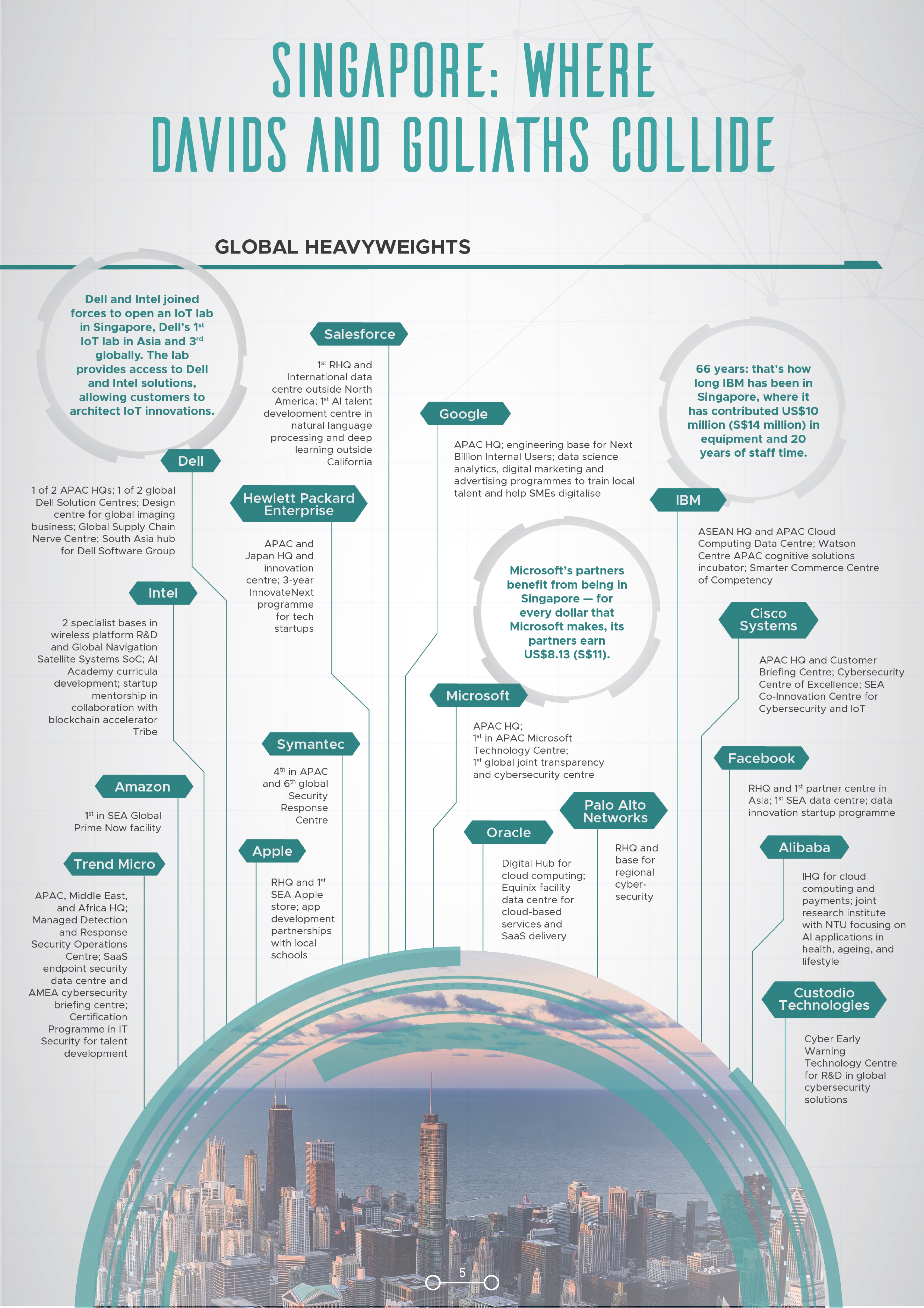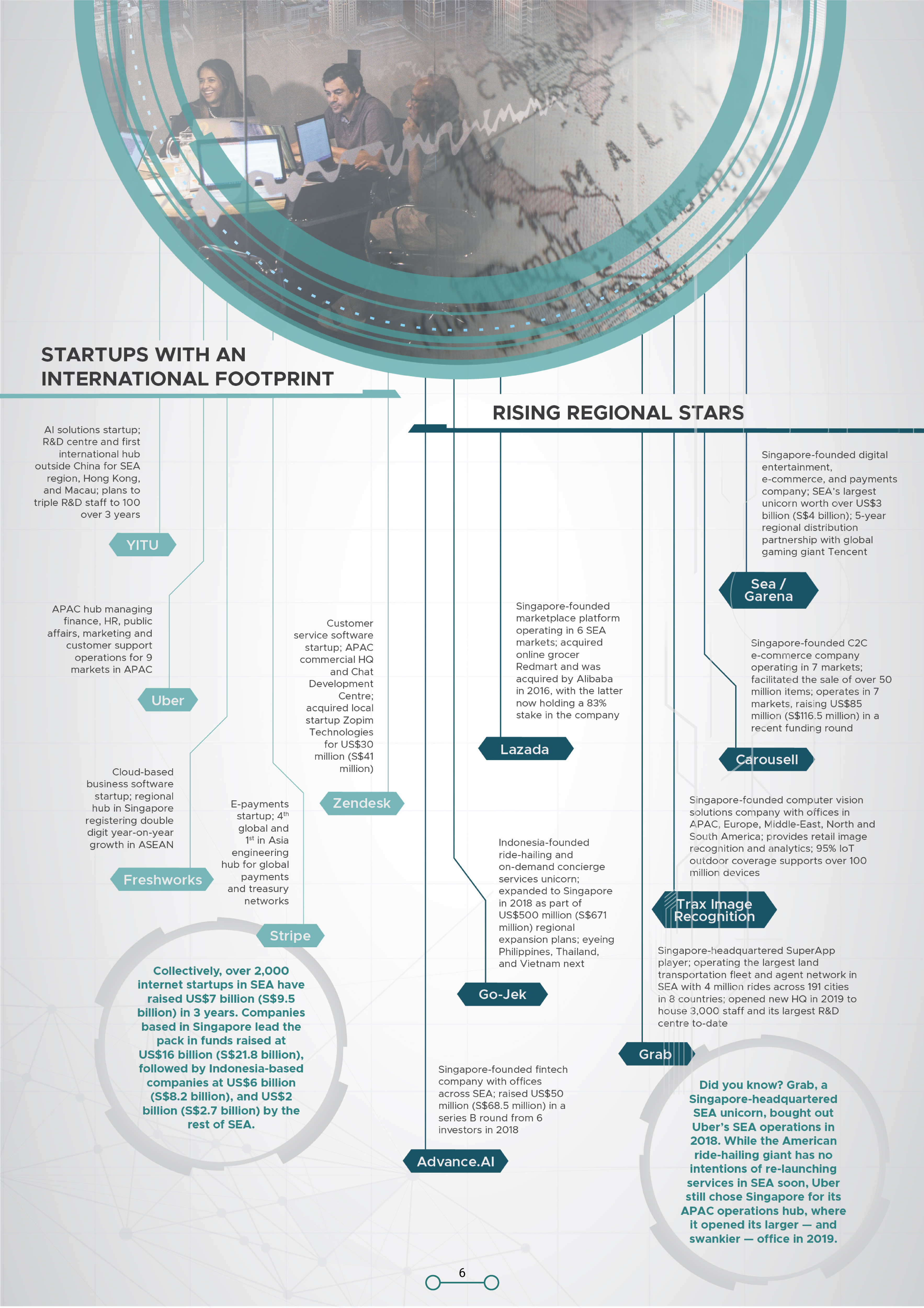Understanding Singapore’s Technology Aspirations
When you think of technology, what comes to mind? The latest gadget you are coveting? Or the new SaaS tool that you've created for your clients? Revolutionary technology means different things to different people, yet without the creative space to innovate, develop and test ideas, evolution cannot take place. In this article, our Editor reviews the technology and investment ecosystem in Singapore.
By Lucy Haydon, Editor, Orient Magazine
To put Singapore's digital expectations into context, we begin by considering the nation's level of digital use, which provides such a highly connected testbed for new products and services in the region.
In We Are Social's annual research released in January of this year(1), internet users had increased by 5.3% since 2019, reaching 5.14mn. 84% of Singaporeans are now online, spending an average of 7 hours per day connected. 1.5x the total population (8.56mn) have mobile connections, which account for over half of all web traffic - an increase of 1.7% on the previous year. In fact Singapore came fourth of 79 countries in the Global Connectivity Index 2019(2). The average Singaporean spends over US$3,000 per year using digital payments - a total value of US$12.31bn in consumer payments made digitally. Social media use has reached 79% penetration, with 4.60mn social users, a 1.6% increase since 2019.

Source: https://www.imda.gov.sg/infocomm-media-landscape/SGDigital/Digital-Economy-Framework-for-Action
This year, the SG Digital Office has been launched to accelerate further digital adoption in the community post COVID-19. With a goal to equip people and business with the digital tools and skills they need for the new world post-pandemic, the SDO has prioritised the senior community and local stallholders at launch.
Singapore’s technology aspirations are published within the Digital Economy Framework for Action and the Infocomm Media Industry Transformation Map (ITM). To achieve the published goals, listed below, the framework drilled down into talent development, R&D, the local infrastructure and governance.
- To digitalise every industry and business, raising productivity and efficiencies as a way to grow the economy.
- To sharpen the nation's competitive edge by supporting companies to leverage on digital technology.
- To transform the infocomm media industry to be a key driver of the economy and with a secondary aim of adding 13,000 jobs by the end of this year.
For the latter goal, the Infocomm Media Development Agency (IMDA) focused on four key areas for the development of the nation's technology expertise. The ITM focused on helping sectors to adopt technology, exploring growth in the four identified areas, and building local talent.
Artificial Intelligence
Specifically, Singapore is looking to develop niches within the research and development of AI, building local capabilities and focusing on collaborations. In talent development, the AI SG programme is a partnership between the IMDA, the National Research Foundation, the Smart National and Digital Government Office, the EDB, SGInnovate and Integrated Health Information Systems to increase the level of knowledge and skills in the local workforce. As part of the programme, the NRF is investing SG$150 million over five years(3).
For businesses, since January of this year the second edition of Singapore's AI Governance Framework has been open for consultation. The framework is intended as a sector and technology agnostic approach to guide internal governance procedures, the level of human involvement in AI-augmented decision-making, operational elements and the communication of, and feedback on, internal AI policies. Working with the World Economic Forum, the IMDA has developed an Implementation and Self-assessment Guide of Organisations (SGIsago) as a companion to the planned framework.
In addition, the Digital Services Lab is an engineering team working with Government, Institutes of Higher Learning and research teams to deploy technology capabilities for industry. APIs, source codes and databases are made available to industry via the Open Source AI libraries, though only two data sets are currently available.
Cybersecurity
Singapore's focus for cybersecurity advancement is to increase the resilience of its infrastructure to cyber-attacks. The region's first cybersecurity start-up hub, ICE71, aims to strengthen Singapore's ecosystem and mitigate risk through the attraction and training of new talent, providing market access, and connection opportunities with partners. The Cyber Security Agency focuses both on the national security element as well as training and public awareness campaigns, as society continues to move increasingly digital. To broaden the local skillset, SkillsFuture training, postgrad scholarships and talent programmes are available.
Immersive media
Referring to technology such as virtual reality, mixed reality and augmented reality, immersive media in Singapore is typically used in industry for training simulations, education, design and media. The immersive media sector is anticipated to play an important role in Singapore’s future digital economy, contributing over US$209bn by 2022(4). Enterprise Singapore are working with small businesses through the SME Centres to develop scalable solutions and demonstrating widespread applications of the technology. While the pandemic has put on hold some elements such as the physical scans of spaces, there is increasing interest in the sector(5).
Internet of Things
IoT combines information technology, telecommunications, big data and data analytics to create value across all sectors and elements of modern society. The network of items and devices which are embedded with software and sensors is rapidly expanding, with a resulting expansive gathering of datasets. The IMDA focuses on reducing the costs of sensors and lengthening their life cycle, developing partnerships and working closely with those in the cybersecurity sector to protect the data streams generated by IoT devices.
Attracting Global Investment
Rarely does a month pass by without the public announcement of investment or development in the technology industry in Singapore. The Economic Development Board positions the country ready for investment by focusing on an ecosystem which includes world-leading global technology firms such as Google, who launched in Singapore in 2007 with 24 people and now consider the country as their regional hub, with around 1,000 employees; and regional leaders such as Grab, who have established a US$100mn R&D centre.
To support major investment decisions for industry-leading global players, the Tech@SG programme, delivered jointly by the EDB and Enterprise Singapore, facilitates the entry of global technology talent for eligible fast-growing companies to establish their core teams. Recent years have also seen an increase in companies choosing Singapore to build out regional data centres, leading to the establishment of a Data Centre Park in order to attract further investment.


Source: Singapore’s Tech Ecosystem - Economic Development Board
Are you a UK technology firm interested in the opportunities in Singapore?
Further information and support from our Trade Services team is available, including market research, virtual trade mission support and business matching. Complete the enquiry form at www.britcham.org.sg/expand-your-uk-business-into-singapore to start the conversation.
